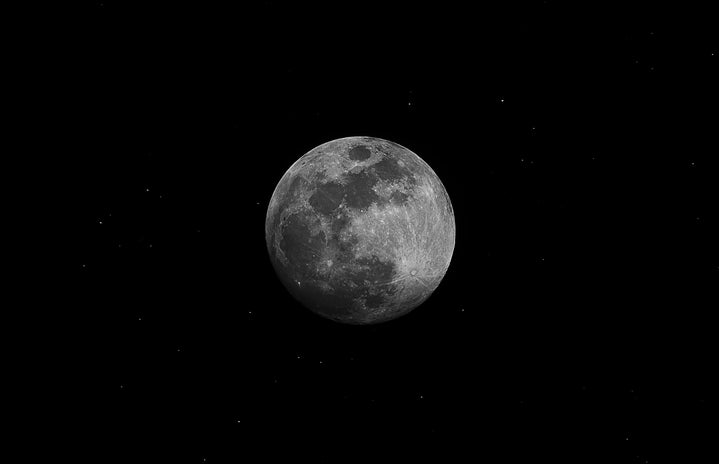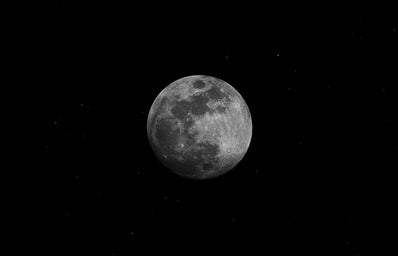When I worked at a daycare, I got to know many people with varying outlooks on life. One commonality I found was how many people believe that the full moon has an effect on people’s behavior. Children would be acting up and one of my coworkers would say, “oh, it must be because of the full moon.” In another case, one person told me how they were feeling “off” and looked out the window that night to see a full moon.
I’ve heard case after case of these stories—people recalling times when their behavior or the behaviors of others was seemingly connected to the full moon. It got me wondering if there was any truth to the passionate conviction of my coworkers. So, does the full moon actually affect your behavior?
The History Behind “Lunar Lunacy”
The fascination with the moon’s perceived mystical effects has persisted since ancient times. Greek and Roman philosophers speculated on the power of the moon and the “inner tides” of the brain. The Greek goddess Luna was worshiped by proclaimed “lunatics.” Throughout the Middle Ages, Europeans believed in the effects of the moon and how it could transform the human psyche. In legends, werewolves and vampires transformed under the full moon.
While the mystical effects from the moon are mere urban legend, they have been perpetuated through Hollywood interpretations and long-standing myths that sound just real enough that people believe them. Many cling to the thought of supernatural forces as a way of explaining the ups and downs in their lives. Full moon fantasticism is the perfect tool.
Debunking the “Evidence”
When I first started asking my coworkers about their full moon beliefs, I made sure to ask them why they believed in the effect of the full moon.
“Well, it’s based in science!” one woman said. When I asked for elaboration, she said, “the moon’s tidal force affects the fluids in our brains, making us act and think differently.”
This isn’t actually true, and there are two main reasons why. Yes, the moon has a strong tidal force, which causes tides in large bodies of water. But the first problem with this tidal force theory is that the gravitational force from the moon does not have the strength to affect the fluids in your body. As a matter of fact, a mosquito has more of a gravitational effect on you than the moon. At the same time, the moon’s tidal forces only work on open bodies of water, which rules out the brain. The second major problem with this idea is the fact that if the moon could affect brain activity, it would have equal effects during the full moon and new moon. And yet, how often do you hear people talk about the new moon affecting their mood? Not much.
The other, more reasonable evidence presented by full-moon-behavior-theorists, is the effect that light from the full moon has on sleep patterns. The thought is that because of the larger amount of light during full moon periods, people have a harder time sleeping, which can therefore affect their mood and behavior. While this is the more viable of the two pieces of “evidence,” there is no research to confirm that this is true. Studies have been conducted to determine how the full moon affects people in different ways, and while this sleep theory has been tested, the expected results were not present. Instead, no correlation was found between the full moon and quality of sleep.
Why do people still believe in the Full Moon’s effects?
There is a lack of evidence for the full moon’s adverse effect on human behavior. And yet, why do so many people still believe in the power of the full moon? The answer is found in the psychological phenomenon known as illusory correlation. This concept refers to the tendency of people to attach meaning to a connection between two things when no such connection actually exists. It is fueled all the more by validation. When we notice that the correlation we’ve created in our minds actually works, we use that as proof, rather than coincidence.
So, when children at the daycare were acting out during the time of the full moons, it became stronger proof of the connection between the full moon and the children’s behavior. My coworkers then became more convinced in this belief, when in reality, the children had issues at other times throughout the month. Problems were always there, but they were noticed more frequently during the full moon periods.
The illusory correlation perpetuates what we already believe to be true, thriving on validation and the self-fulfilling prophecies we concoct in our heads. Once a correlation has been made, it can be difficult to see past it, but the best way is through evidence and fact.
The Facts
The fact is that a full moon doesn’t affect your behavior; you do. Scientifically, the moon doesn’t change anything, but psychologically, people believe it does and subconsciously act in conjugation with their preconceived notions.
I understand that it’s hard to accept that something you’ve believed for so long isn’t true. But recognizing this illusory correlation in your life can help you see through other similar correlations you have made that aren’t true either.
In Conclusion…
The moon does mystifying things for our imaginations. It may not affect our behaviors, but it definitely has an impact on our everyday lives. We need the moon. And while the centuries-old fascination with it may have gotten some things wrong, we can all still agree on one thing: the moon is beautiful and deserves all the attention we give it.
***
Sources:
- thedescisionlab.com
- scientificamerican.com
- bbc.com
- reconnectwithnature.org Does the full moon actually affect your behavior?


